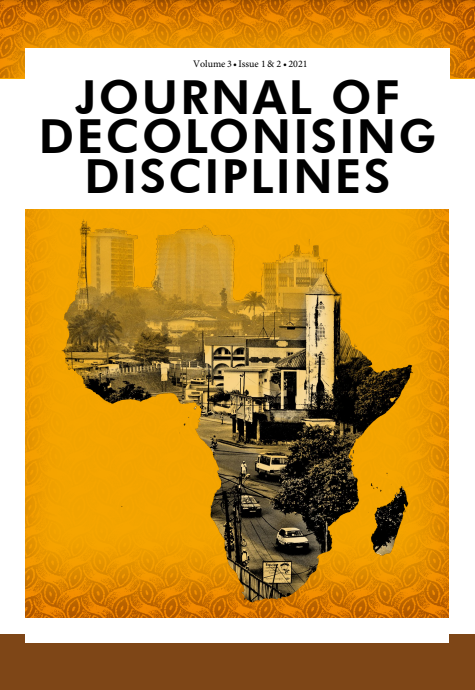Human Rights in the zones of non-being: Lessons on [not] speaking about and on behalf of “others” from J.M. Coetzee’s Foe
DOI:
https://doi.org/10.35293/jdd.v3i1.20Keywords:
Human Rights, decoloniality, zones of non-being, humanitas, anthropos, J. M. CoetzeeAbstract
One of the modern dictates of freedom is a human’s right to free speech as enshrined in the United Nations’ (2015) Universal Declaration of Humans Rights of 1948. The very concept of “universal” rights foregrounds the question on what and who is human. Following this universal doctrine, all freedoms, including the freedom to free speech translates ultimately to “beings” that are critically self-conscious, or at least beings who are regarded as human-beings, who are allowed to exist, to live, and to be free. Indeed, to examine what has happened to those who exist in Fanon’s (2008) zones of non-being who are denied their right to free speech even after the “universal” pronouncements of 1948 is equally important. In fact, all along and even today (and because of coloniality) the Third World citizens may still be denied their right to free speech, their right to be free from economic bondage or otherwise – which are, after all, their natural rights to be human. To be “free”, to be “human” or to “live” denotes that one has the ability to speak as the universal declaration accords. The voice (an ability to be heard) or its lack creates beings that are not regarded as human. Indeed, the effects of talking or not talking of the anthropos, or on behalf of them is explored, somewhat as the unreliability and the corruptibility of the authority of language and authorship. This is to say, the meaning and intentions (of the voice) that belongs to those in the zones of non-being are most often misunderstood, mistranslated and sometimes misread – stripping them of one of their essential human rights to be heard. The possession of language in the world where there are two zones, as illustrated in John Maxwell Coetzee’s Foe (1986) does not guarantee one to be heard or liberated.


